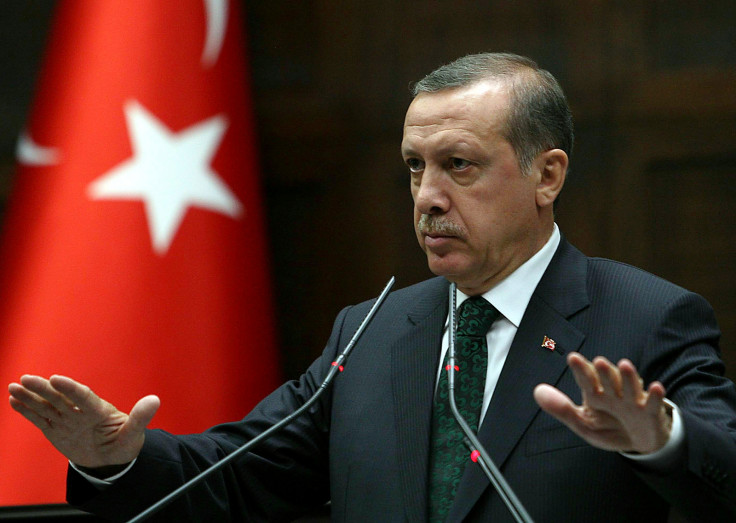Turkey blocks Google, Microsoft and Dropbox services to 'suppress' mass email leaks
The outages come after the release of 17GB-worth of leaked government emails.

In an attempt to curb the spread of leaked emails from a high-ranking government official, the Turkish government reportedly blocked access to a slew of well-known technology and cloud services in the country, including Dropbox, Microsoft OneDrive, and Google Drive.
According to Turkey Blocks, a web monitoring organisation that reported the outages, the nationwide censorship attempt was launched on 8 October. It followed the release of 17GB-worth of leaked emails allegedly from Berat Albayrak, minister of energy and natural resources who is also the son-in-law of Turkey's president, Recep Tayyip Erdogan.
Upon analysis, the monitoring group found that both Google Drive and Dropbox services were issuing SSL errors. This, it said in a blog post, indicated the traffic was being intercepted at a national or internet service provider (ISP) level. Additionally, the impacted services included popular developer platform GitHub.
Impacted ISPs reportedly included TTNet, UyduNet and Turkcell, although foreign visitors in Turkey would still be able to access the cloud platforms as "their data is tunnelled to the country of origin." In its latest Twitter update, Turkey Blocks said that access to Google Drive has since been restored due to the fact it complied with the takedown demands of the government.
Some users in the region have indicated that Dropbox has been restored. A spokesperson confirmed to IBTimes UK that its cloud service appears to be back online, saying: "We are pleased to confirm that Dropbox is now available to our users in Turkey again."
The leaked data in question is a massive trove of 57,623 emails from the Turkish government dating as far back as 2000, according to The Daily Dot, who obtained a full copy of the stolen messages. The emails exposed how pro-establishment social media trolls were silencing criticism and targeting any opposition to the government.
The hackers were threatening to leak the stolen data if the Turkish government failed to set free a number of leftist dissidents. Far from complying with these demands, the government instead chose to ban a slew of news outlets and forced Twitter to suspend accounts circulating the leak, the Daily Dot said at the time.
Update: #Turkey issues formal order blocking @GoogleDrive to suppress distribution of new #Redhack email leakshttps://t.co/xObmf8D00j pic.twitter.com/wezNIfnKhq
— Turkey Blocks (@TurkeyBlocks) October 8, 2016
A court in Ankara confirmed the legitimacy of the email leak in a legal order that discussed the investigation of suspected RedHack members. IBTimes UK contacted Microsoft and Google for additional comment however had received no response at the time of publication.
Previously, the Turkish government banned whistleblowing platform WikiLeaks after it published over 300,000 emails purportedly hacked from President Recep Tayyip Erdogan's ruling party AKP. As reported, the Julian Assange-led operation claimed it came under "sustained attack" after announcing plans to release the data into the public domain.
The censoring of technology and social platforms has long been used by Turkey to curb dissent. Even before the massive coup attempt in the country earlier this year, Turkish courts have been known to issue nationwide blocks to websites. In 2014, Tayyip Erdogan vowed to "wipe out" Twitter.
During the bloody 2016 coup attempt, which claimed the lives of almost 300 people, Turkey Blocks claimed that Facebook, Twitter and YouTube were blocked in the country. Yet in an ironic move, the Turkish president himself was forced to rely on FaceTime streaming to address the nation during his time of crisis.
© Copyright IBTimes 2025. All rights reserved.






















